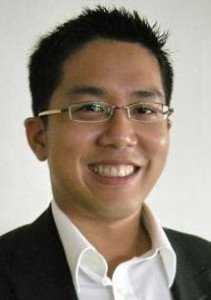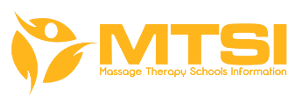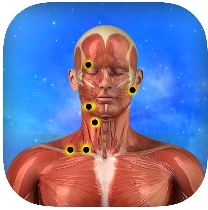
My name is Nigel, and I co-founded and co-run a private physiotherapy and rehabilitation group called Urbanrehab Pte Ltd in Singapore. Altogether there’s about 8 of us; of which six practices in the clinics and another 2 are part timers who does house calls. Our team of 8 consists of:
a. 3 physiotherapists
b. 1 occupational therapist
c. 1 hand therapist
d. 2 massage therapist
e. 1 traditional Chinese medicine physician
Our main target market are professionals, managers, executives and technicians (PMETs). Our specialty revolves around a few key unique points – being the only practice where the disciplines are multidisciplinary for best clinical results; unrushed one-to-one with the specialists (no assistants). We work closely with orthopedic surgeons, general practitioners and sports doctors.
2. Tell us why you chose to go into massage and at what point in your life did you decide to do so? What were you doing at the time? Where did you first hear about the massage career? What factors influenced your decision? What were you looking to get out of this decision?
It kinda grew on its own, organically. When we first started out, we didn’t have this option – we started off as a one-man operation, and slowly as we grew as a practice and as clinicians, we found that our clientele often comes to us with muscle tightness, which requires massage therapy to ease the discomfort. We also decided to grow this division as we found that it was better to delegate this task to people who are dedicated to massage, and we can focus on what we do best, which was physical therapy.
Some other factors that influenced this decision was also because we have both clinicians and patients who were requesting for us to start up the service, and we decided to give it a go.
3. What were some of your questions and concerns before further pursuing your massage therapy goals? Talk about concerns with school and the profession itself.
Both of the massage therapists that came to me started massage therapy as a mid-life career switch; they were both doing something entirely different, but had injuries that caused a lot of pain and discomfort in their lives…and massage therapy had changed their lives. That caused them to ponder seriously about the massage therapy that they had received, and motivated them to make a career switch.
In Singapore, they both pursued the same massage therapy course in ITEC, which was recognized, so I believe that a recognized degree or cert was important to them.
4. What is your specialty and what are the top three contributing factors to your success today?
Our specialty is likely to be a combination of being the only multidisciplinary team that works and communicates together, close communication with referring doctors and a “I can do it” attitude to help our patients to get better.
Of course, we have our deepest thanks to our referring doctors who believe in us hence referring patients to us, as well as patients who keeps telling their friends to come to us to solve their pains.
5. What do you like about your specialty? What do you like about what you do in general as a career? Why?
Professionally, I am a hand therapist – it’s a very niche specialty working closely with hand surgeons and orthopedic surgeons, to treat patients with hand injuries such as fractures, tendon ruptures, strains and repetitive strain injuries.
What’s nice about hand therapy is that it’s a very “quick response” type of therapy – when I do things right for the patient, the results are often instantaneous, and that’s often very exhilarating.
As a group, I like it that we’re the only group with so many disciplines that work together cohesively to help our patients, and we all agree that sessions cant be rushed for great results.
6. What do you not like about what you do? Why?
Hmm. It’s a service industry, so it can get quite physically taxing, especially when we have non-stop appointments back to back. Also, it’s sometimes quite hard to say no to patients when we’re already fully booked, causing us to keep extending our working hours – why this happens is because we really sympathize with patients and cant stand to see them in pain =(
7. If there were three things you could change about your work or the industry as a whole what would they be? Why would you change them? What would you change them to?
What I would like to do better in my work is to be better in managing my time and people. As the organization has increased 400% in the past 2 years from 2 persons to 8, it’s taking up a lot more cognitive, emotional and problem solving than I ever had.
I am reading more management and business books as well as consulting with more business friends for advice. I am also starting to delegate and hire more staff who can do a job better than I can.
8. How long do you plan to practice and what do you plan to do after?
At this point in time, I would love to practice for as long as I can, and if the business requires me to take a more management position, I still would do so for as long as I can.
Hmm, what I plan to do after? I don’t know – maybe retire? Haha! Well to be frank I’m planning at most 2-3 years ahead, and I don’t know what will come after 5 or 10 years – l’ll evolve as I go along I think.
9. Do you currently have another job or business whether full time or part time? Tell us a bit more about it and how you are able to juggle that with your massage career?
My primary business is Urbanrehab Pte Ltd, where I juggle between being a clinician and a business owner, and that’s already tough with me working more than 70+ hours per week! Haha! I do try to find time in between to start some smaller businesses (online), but unfortunately, they had never worked out as I didn’t have the time nor energy for more commitment.
10. What are some mistakes you made in your career pursuit that you’d like to warn other students about so they can learn from your experience and avoid it?
Hmm…I think, in hindsight, one of the few things that I regretted is not researching more about a profession. Because I didn’t really research more in detail on the current profession, it was shocking midway throughout my studies when I found out how low my salary would be upon graduation, and the limitations in climbing the career path.
I’d recommend people who are keen to pursue a profession to first arrange for a 1 month internship/attachment to identify if they would really want to pursue it, and secondly, to arrange to have coffee interviews with a few key personnel to understand a little more about the profession and industry. With these, then can they be equipped to make a more informed decision.
Secondly, is to plan in advance your path. Such as if as a therapist, would you prefer to be in a purely outpatient clinic, or would you prefer to be in a hospital. Certain specializations are only restricted to certain locations – an example is a respiratory therapist can only practice in a hospital with respiratory medicine, so one who specializes in that can never go into private practice. So, do your research, and choose well.
11. What would you advice someone who is looking at massage therapy schools? What do you recommend they look for and how? How do you recommend they determine whether the school is the right one for them?
For someone who is looking at massage therapy schools, I would recommend them to have a structured manner of selection – have a list of criteria that you’re looking for in a massage school. Examples are the schools need to be reputable, and their degrees/diplomas/certs recognizable internationally to provide you more mobility geographically. Look in details how one massage therapy program differs from another, find out the differences.
How to know if it’s right for you is when it meets most of your structured criteria, as mentioned – criteria can be on reputation, recognizable degrees, location, price etc.
12. What do you recommend for someone who wants to go to massage school but cannot afford it?
Hmm. Some problem solving would be required for this, and it’d differ for each individuals. Some of the thoughts that come to mind is if:
– they can get a scholarship (if they school has such an option)
– they can work part time and study part time (if they school has such an option)
– they can find sponsors to help loan or gift them the price
– they can find a massage practice that allows on-job-training
– they can pick up a book and self learn (a slower process, and no certs)
– etc etc
13. What are your three biggest points of advice for an aspiring massage therapist today? What should they do/not do? What should they think about and consider?
If you are aspiring to be a massage therapist, you’ve done your due diligence, been for your attachments and know the limitations and strengths of yourself and this profession, and if you’re still serious about it – here’s some crucial advice:
– be the absolute best you can be – put in the hours and effort to learn and practice. It takes thousands of hours to be very good at what you do, and study in a reputable school
– take care of yourself – this includes resting, drinking water, exercising, good and healthy food, avoiding bad and junk food
– network, network, network with people in the same field and outside your field but in your same industry
14. Any open thoughts / comments – anything else that you’d like to share about yourself, the massage industry, profession, future, etc? If nothing, make one prediction for the future of massage?
The massage industry is a wonderful healing industry, and it does healing wonders for many people, when done right. It is also a very physically tiring job, so massage therapists need to take very good care of themselves.
As the world keeps moving faster, more and more stress, especially in the first world countries and advanced countries, there will be more and more people who will need regular quality massage to heal their bodies. This will lead to more massage schools and individuals – so to stand out, go to a reputable school, clock your hours and do your best, on top of networking =)
15. What is your passion outside of massage? What are your hobbies and interests which you pursue when you are not working? Tell us why you enjoy what you enjoy.
I am both a clinician (hand therapist) and business owner. Outside of these two responsibilities, I enjoy cooking – I prepare meals for the week for myself and my wife. I enjoy regular jogging and exercising. I also enjoy reading books and meeting up with close friends and family.
Nigel Chua Gin Han holds a Bachelor of Health Science in Occupational Therapy (University of Sydney, Australia) and a Diploma in Occupational Therapy (Nanyang Polytechnic, Singapore). He runs a private physiotherapy and rehabilitation practice in Singapore. You can reach him at his business website here, or his personal blog here.








Hi Neal
Thank you so much for having me here and interviewing me – it’s both a privilege and honor for me.
Let me know how you’d like me to help you, and I’ll do my best.
Cheers mate!
Nigel
Nigel, great to see your interview published. I am sure this will help the many aspiring therapists who read our website. Your perspective is an employer’s perspective an especially valuable one from a career prospecting stand point.